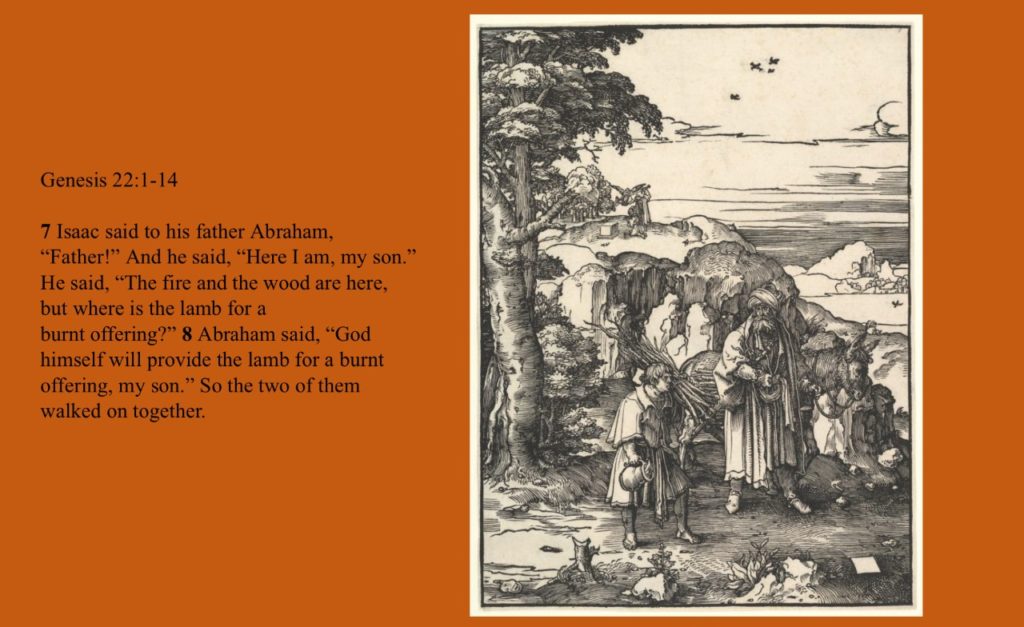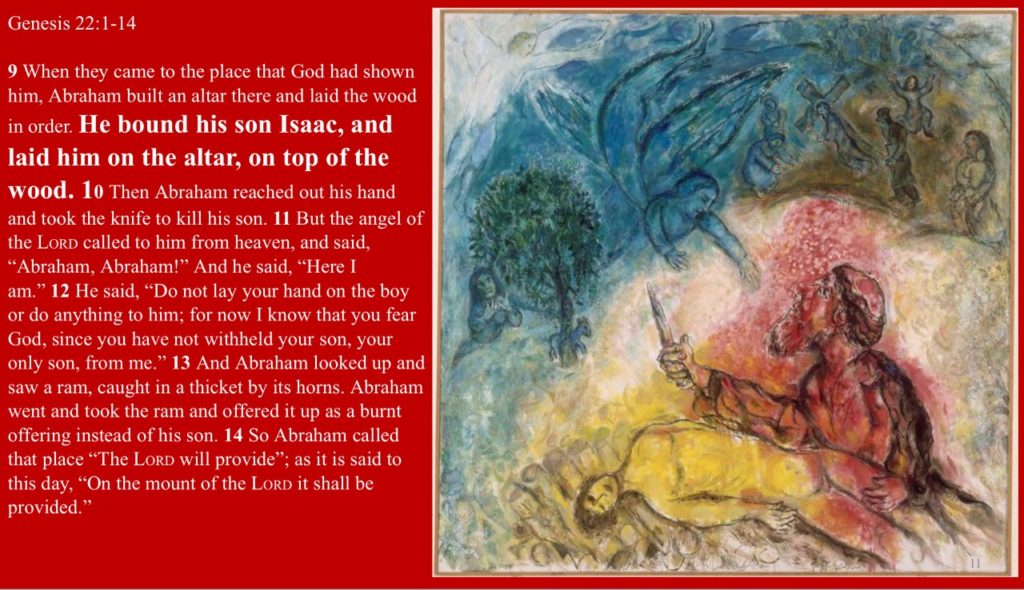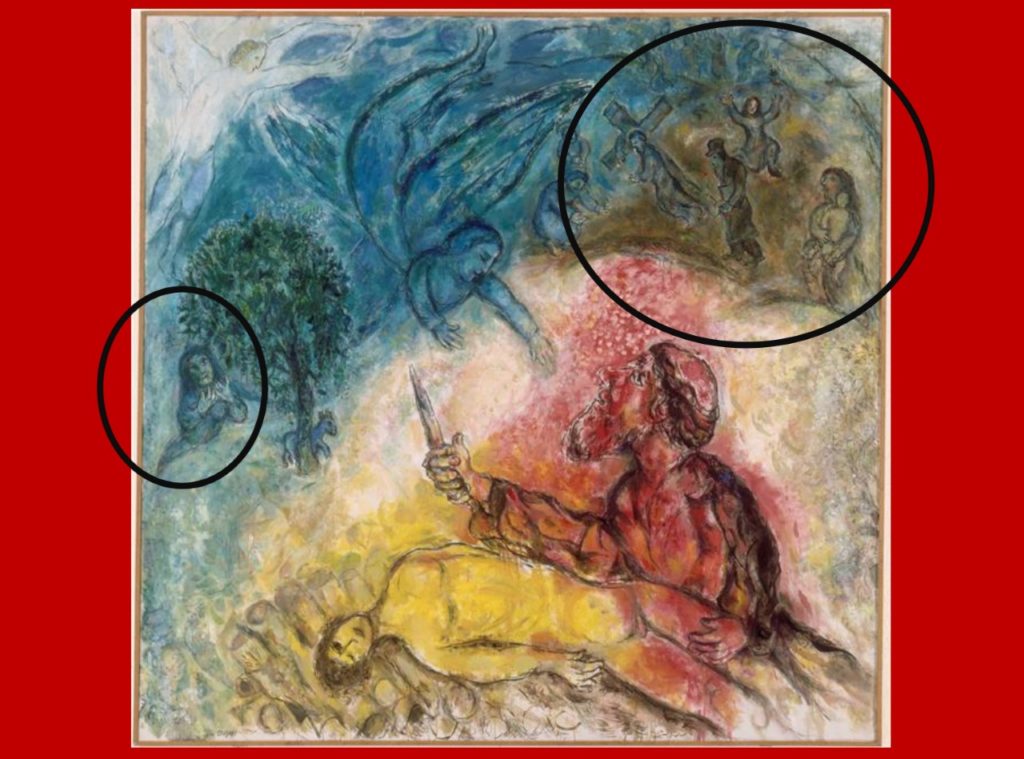A Special Sermon for GLBT Pride Sunday
June 28, 2020
by Rev. Kelly Jane Caesar

For a rainbow to be beautiful requires each strip to only take up so much space. If any one color takes over, well then, it is no longer a rainbow. As a people we create a rainbow that requires that each person sacrifice so that all can be blessed to be a part. I invite you this morning to consider how much space and time your color takes up. Do people hardly see the color you add? (hold up tiny balloon) If so, how might you share your gifts and experiences more boldly? Or, does your color dominate so that others are overtaken? (hold up huge balloon) If so, how might you step back and invite others to shine?
To maintain a stunning rainbow community requires sacrifice. Perhaps you are called to sacrifice shyness or fear in order to bring your color to the mix. Perhaps you are called to sacrifice pride or control in order to makes space for other colors to shine.
Our scripture this morning calls for a great sacrifice in order for the nations to be blessed. Today’s story can help us discern what and how to make right sacrifices in our own lives.
Today’s story asks for the sacrifice of Isaac, the much-awaited promised son of Sarah, a son whom would continue Abraham’s name and bless the world with descendants as numerous as the stars in the sky. Let us listen, for this story has an important message for us today as we discern the sacrifices we are called to make.
SCRIPTURE Genesis 22:1-14
God asks a great sacrifice of Abraham: his long awaited-for son Isaac. Why would God ask for such a sacrifice? More importantly, how could a loving God demand such a traumatizing act? What sort of test is this that Abraham somehow succeeds because he is willing to follow through and kill his son?
The answer to these questions can help us discern what sacrifices are required of us in our lives today. So, how could a loving God command such a devastating sacrifice?
Traditionally the answer is that God wants to know if Abraham trusts that God will provide. The text indicates that both Abraham and Isaac have such trust.
In verse 5, Abraham tells his servants that we, himself and Isaac, will return from the mountain after the sacrifice – indicating that Abraham trusted God to provide.

This is confirmed a few verses later when Isaac asks where the sacrificial animal is, and Abraham responds that God will provide. The fact that Isaac asks shows he is old enough to know some of what is going on.

The text does not indicate that Isaac struggles when being tied down on the wood. This leads many biblical interpretations to believe Isaac was willing and trusting in the sacrifice.

The popular interpretation is that God asks for such a sacrifice because God wants to know that Abraham trusts in God.
When considering whether a sacrifice is right in our lives, we can examine if our hesitancy is a lack of trust or something else. Are we scared to take the step because we do not believe God will work for our good? Are we scared to take the step because we do not trust God loves us?
Sometimes people stay in unhealthy or harmful relationship, mistakenly believing they are making a right sacrifice, but in reality, on some level they do not trust that God loves them and that they are worthy enough of love to leave for something better.
Sometimes people say yes to too many demands, thinking that the sacrifice of their time is good – yet too often saying yes to every request can actually be a sign of distrust and fear that one is only lovable because of what one does for others.
Right sacrifices are made in the full trust of God’s love, not out of fear or guilt.
The second lesson this scripture teaches us about sacrifice has to do with the outcome and the way this story is echoed through holy time. The command to sacrifice Isaac is a HUGE trust fall for Abraham and Isaac. Seeing the trust is there, God proceeds with the promise to use them to bless the nations.
This story of unfathomable trust, sacrifice and God providing reverberates through history.
In the artwork of Marc Chagall you can see how the sacrifice of Isaac is echoed through both the story of Hagar and Ishmael and Jesus on the cross.

Hagar and Ishmael are sacrificed into the wilderness and likely death only a few chapters earlier. In that story, as we heard last week, God provides. So in Chagall’s painting in the lower left there is a woman crying out as Hagar did.
Thousands of years after Abraham, Jesus will trust and become a sacrifice so that God can provide proof that God’s love and power overcome death. Isaac’s apparent obedience echoes in the obedience and trust God’s own son Jesus would exhibit in the garden of Gethsemane and by going to the cross. This popular Christian interpretation is depicted in Jesus carrying the cross in the upper right corner of Chagall’s painting.
In all three cases the great sacrifice and great provision of the Divine enables widespread blessing for countless people. For Ishmael, he becomes the patriarch of Islam. For Abraham and Isaac, the patriarchs of Judaism and Christianity. For Jesus, the salvation of all people; the lived proof of God’s everlasting love for all. [KJ]
Yet, the command for such a gruesome sacrifice can seem cruel, unnecessary and beyond comprehension to our modern ears – especially in light of the trauma inflicted on too many victims of domestic or child abuse in the false name of sacrificial love.
However, there are times when we make great sacrifices for a greater love and lasting righteousness. Sons and daughters go off to war to fight atrocious dictatorships – risking their lives for a lasting peace. Children marched with Rev. Martin Luther King in the civil rights movement and just last weekend children, teens and young adults lead the way in Hartford, East Hartford, and West Hartford and indeed across the nation for racial justice – in each case risking their lives for true peace and equity. During our prelude we saw images of many people who made great sacrifices for the advancement of GLBT rights in America – some even murdered for their advocacy.
We do makes sacrifices, even life-threatening sacrifices, in the hope of “blessing the nations”, to use the language of the promise given Abraham. In the case of Abraham, Isaac, Jesus and disciples of social justice after them, the sacrifice is right for it is made for love for a great many people over generations. When we consider what sacrifices we ought to make in our own lives, we must consider if our actions will aid in the blessing of nations, generations, or many beyond ourselves.
Great change, especially social change, is often born out of sacrifice. There are the heroes – the people on the front lines working for change. But widespread social change requires the majority of society to make some sacrifice as well, perhaps not life-risking sacrifice, but certainly a release of what was. For some it is a welcome and desired sacrifice, perhaps more of a willing release than a sacrifice. However, for others it is a heart-wrenching sacrifice, especially for those who benefit from the way things are. Either way requires a loss of what was, the familiar, and a learning of something new.
The GLBT community has invited the wider society to sacrifice strict gender roles and re-think cultural expectations. When two women go out on a first date, there is no wide-spread social expectation on who pays. When two men raise a child together, there is no wide-spread social expectation on who, quote, “brings home the bacon.” Transgender people have challenged the idea of that physical bodies determine gender. Intersex people challenge the binary male/female divide.
This disruption of strict gender roles is cause for celebration and a gift the GLBT community has given to the wider society, but even good changes that are ultimately blessings require sacrifice.
When laws and policies support GLBT persons – whether by prohibiting workplace discrimination or making it illegal for a doctor to deny coverage to a transgender person – it forces society to sacrifice the strict gender roles and expectations and instead accept a broader rainbow of possibilities. A sacrifice, perhaps, for those with fond memories of dressing their daughters up in dresses. On the other hand, a welcome freedom to those daughters who hated wearing dresses. Disrupting strict gender roles and expectations liberates people to pursue passions and interests they naturally have, instead of what society forces upon them – allowing for more fulfilling lives.
On an even deeper level, letting go of strict gender roles and expectations allows for healthier individuals and more fruitful relationships. Men can cry and have emotions and exhibit strength in compassion for others instead of dominance. Such men are far better partners, leaders, and parents – but to do so such men will have to sacrifice the stereotypical image of a strong man. Women can finish a sentence, be heard in the board room, and even get angry without be dismissed or demeaned. In such situations the group benefits from an important perspective – but the men in the room must sacrifice their privilege of being the first and last to speak and the women must sacrifice the accolades of following stereotypical gender norms. When such sacrifices are made, relationships in offices and at home become more egalitarian and embracive of the whole person.
The sacrifice of strict gender roles bestows blessings upon the nation as we all – gay, straight, male, female, and everything in between- become free to be who God made, to express ourselves fully and be heard, to be seen and loved as we are or may become. But it requires society to change and sacrifice what was.
Much change has already occurred as we celebrate the legalization of marriage unrestricted by gender and new anti-discrimination laws affirmed by the supreme court. Much change continues to be needed as transgender people face a disproportionate amount of violence and hate, with at least 27 murders in 2019, majority of whom were black transgender women. Workplaces may not be able to discriminate in hiring, but they can still write parental leave policies that leave two dads in a tough place to figure out how to care for their newborn.
What if we could trust as Abraham and Isaac, that God will provide a better way? Could we trust enough to really let go of strict gender roles? Could we trust enough to speak up, especially when silence feels more comfortable? Could we trust enough to listen and step back to allow space for others to contribute?
When confronted with decisions about what, when and how to sacrifice, we see from our scriptures that
Right Sacrifices are made in deep trust in God’s love, not fear or guilt.
Right Sacrifice are made for the blessing of nations,
for the expansion of God’s love in the world.
Sacrifices are necessary for change – personally and socially.
Sacrifices are part of the work of social justice and making the world better.
When we make such sacrifices,
we indeed become a blessing to the nations and spread God’s love.
May we trust God enough to make right sacrifices that advance the reign of God’s love for all. Amen.